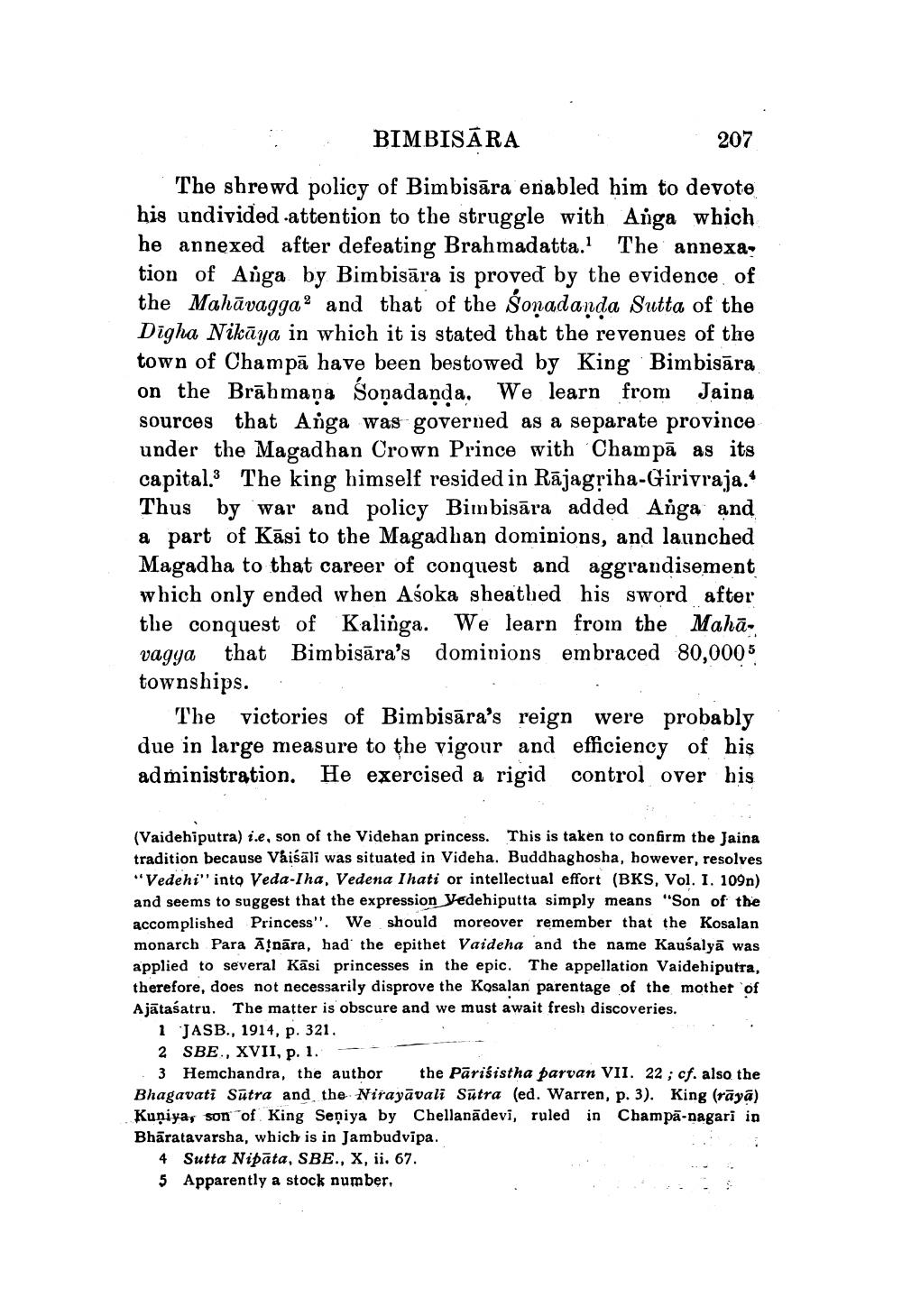________________
BIMBISĀRA
207
sources
The shrewd policy of Bimbisara enabled him to devote his undivided attention to the struggle with Anga which he annexed after defeating Brahmadatta. The annexa tion of Anga by Bimbisara is proved by the evidence of the Mahāvagga and that of the Sonadanda Sutta of the Digha Nikaya in which it is stated that the revenues of the town of Champa have been bestowed by King Bimbisara on the Brahmaṇa Sonadanda. We learn from Jaina that Anga was governed as a separate province under the Magadhan Crown Prince with Champā as its capital. The king himself resided in Rajagriha-Girivraja.* Thus by war and policy Bimbisara added Anga and a part of Kasi to the Magadhan dominions, and launched Magadha to that career of conquest and aggrandisement which only ended when Aśoka sheathed his sword after the conquest of Kalinga. We learn from the Mahavagya that Bimbisāra’s dominions embraced 80,0005 townships.
The victories of Bimbisara's reign were probably due in large measure to the vigour and efficiency of his administration. He exercised a rigid control over his
(Vaidehiputra) i.e, son of the Videhan princess. This is taken to confirm the Jaina tradition because Vaiśāli was situated in Videha. Buddhaghosha, however, resolves "Vedehi" into Veda-Iha, Vedena Ihati or intellectual effort (BKS, Vol. I. 109n) and seems to suggest that the expression Vedehiputta simply means "Son of the accomplished Princess". We should moreover remember that the Kosalan monarch Para Aṭnāra, had the epithet Vaideha and the name Kausalya was applied to several Kasi princesses in the epic. The appellation Vaidehiputra, therefore, does not necessarily disprove the Kosalan parentage of the mother of Ajātaśatru. The matter is obscure and we must await fresh discoveries.
1 JASB., 1914, p. 321.
2 SBE., XVII, p. 1.
3 Hemchandra, the author the Pärisistha parvan VII. 22; cf. also the Bhagavati Sutra and the Nirayavali Sutra (ed. Warren, p. 3). King (rāyā) Kuniya, son of King Seniya by Chellanadevi, ruled in Champa-nagari in Bharatavarsha, which is in Jambudvipa.
4 Sutta Nipata, SBE., X, ii. 67. 5 Apparently a stock number.




